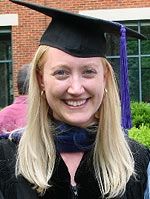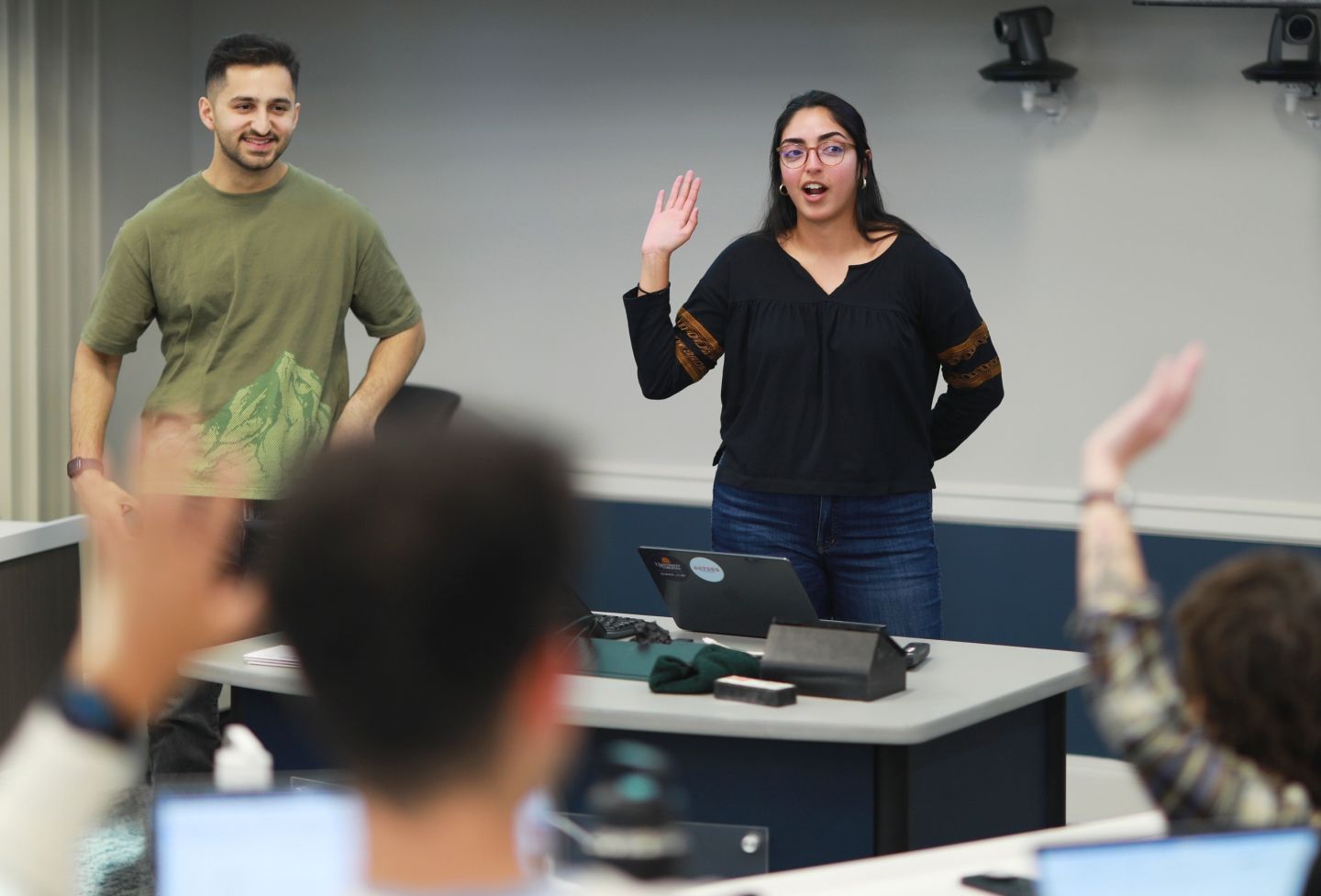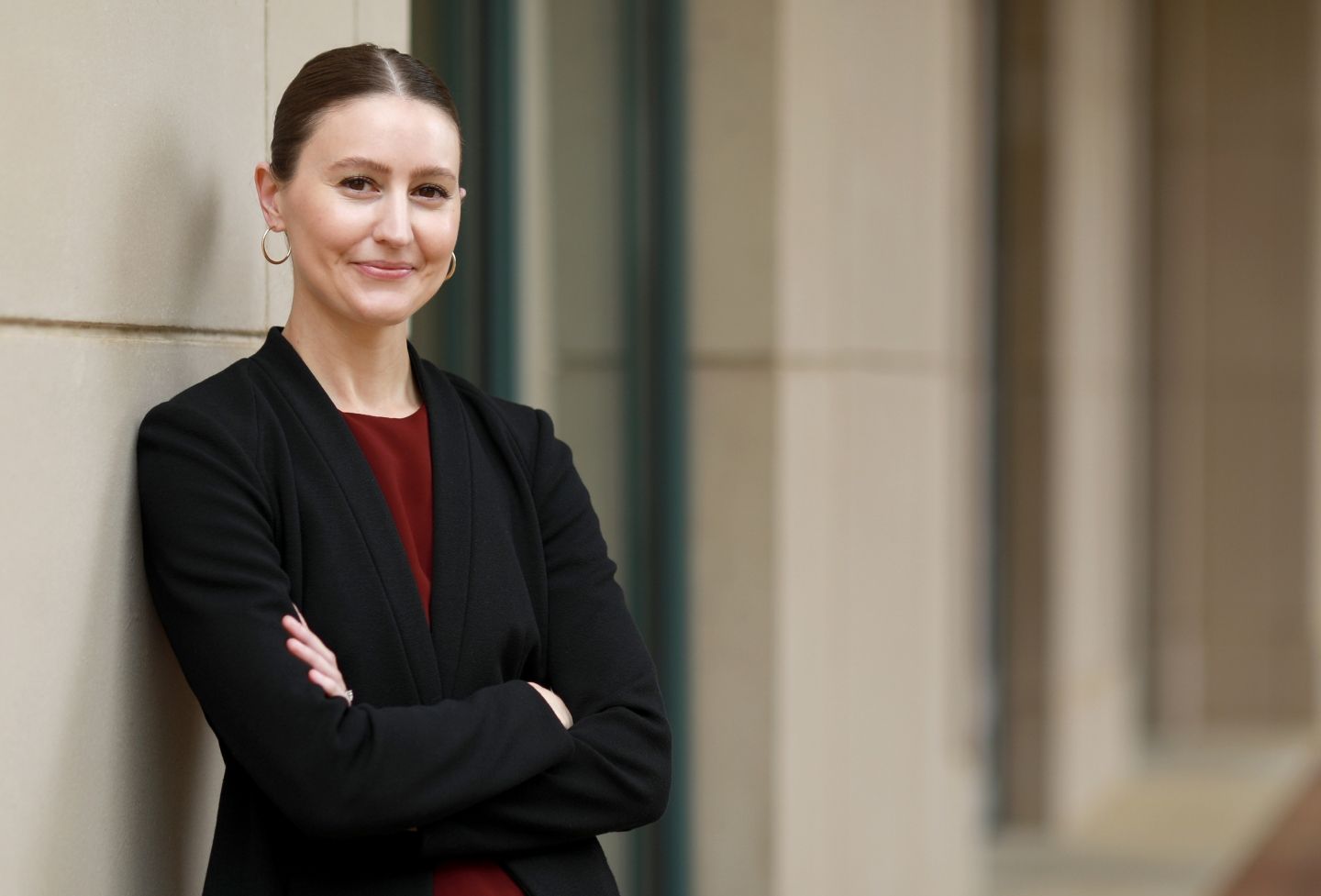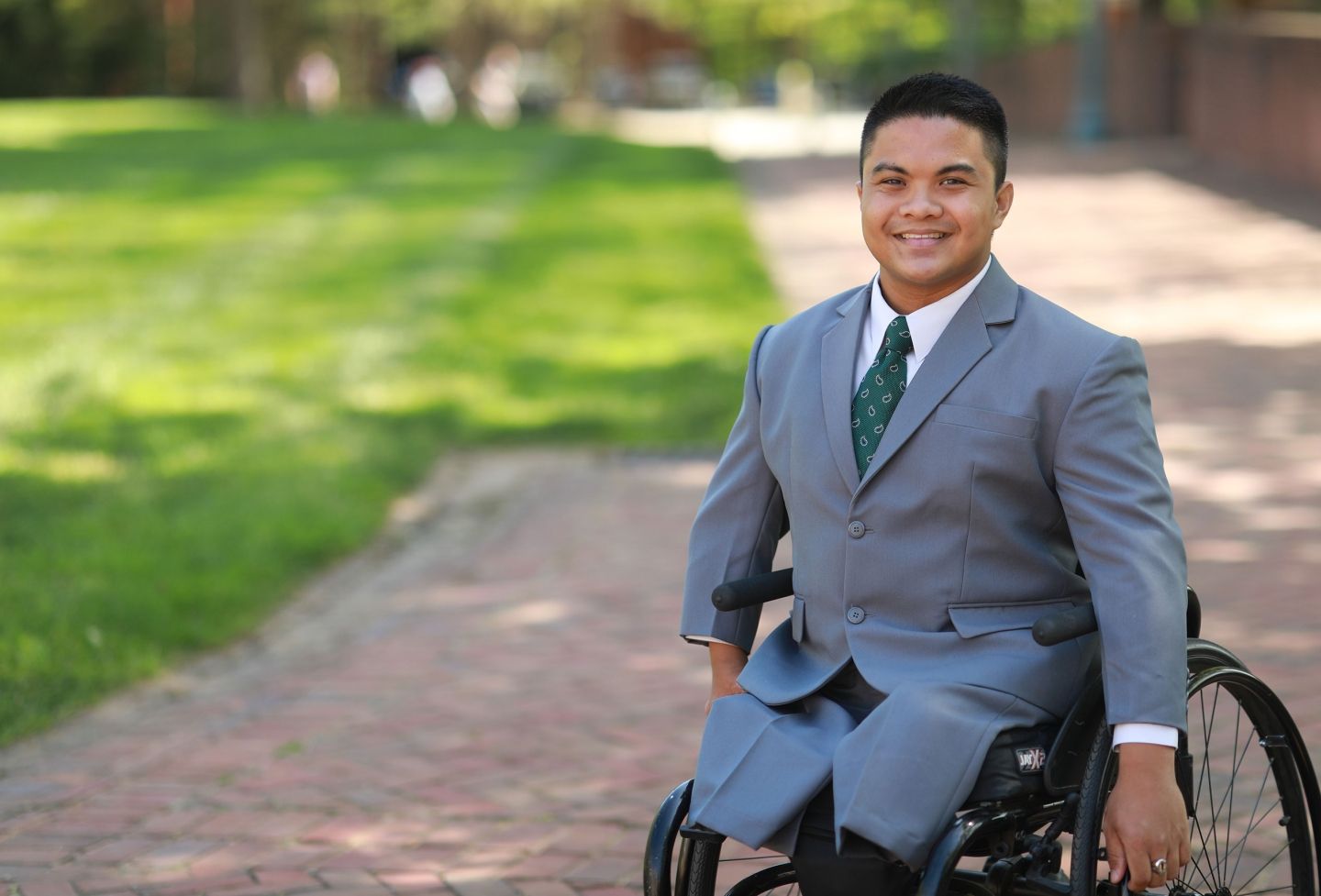Kendrick ’06 Wins Award for Note on Criminally Instructional Speech

With directions on everything from how to bake a cake to how to build a bomb available on the Internet, the boundaries of legal free speech under the First Amendment are increasingly being tested. Recent Law School graduate Leslie Kendrick ’06, who coined the term “criminally instructional speech” to classify such directions that may aid crimes, developed a test to determine whether such speech is legal. Her note on the subject, “A Test for Criminally Instructional Speech,” published in the Virginia Law Review, earned Kendrick this year’s Brown Award, a $10,000 national prize for excellence in student legal writing.
The Judge John R. Brown Scholarship Foundation provides the award, which attracts 80 to 150 nominations annually. Brown, who served on the U.S. Court of Appeals for the Fifth Circuit, was best known for his influential decisions that helped desegregate the South and advance civil rights for African-Americans during the 1960s and 1970s despite considerable opposition. Nominations to the award are submitted by faculty.
“I had no idea that I had been nominated for it and so to hear it first from Mrs. Brown when she called to say I had won the prize, that was just an incredible surprise,” said Kendrick. Kendrick is currently clerking for Judge J. Harvie Wilkinson III ‘72 of the U.S. Court of Appeals for the Fourth Circuit.
Kendrick’s note was the product of an independent study paper she worked on with her adviser, Professor Vince Blasi. The article responds to UCLA law professor Eugene Volokh’s “Crime Facilitating Speech,” published in a 2005 issue of The Stanford Law Review. Kendrick’s piece is significant, Blasi said, because it categorizes criminally instructional speech so that it can be defined and provides a test for whether such speech is protected under the First Amendment.
Whether the information is used to commit a crime is not necessarily the trigger; what matters is the intent of the speaker, Kendrick argues. The easy exchange of information on the Internet has fueled an increasing concern about this type of speech and has necessitated a reliable test to determine what expressions should and should not be protected under the First Amendment.
Kendrick’s test is based on the aiding-and-abetting paradigm. The person who provided criminal instruction to an offender should be held accountable for aiding the crime if it can be proven that he: intended that a crime happen; knew the offender directly; and knew of the offender’s plan to commit a crime. The second part of the test contends that if the instructor did not know the offender or know of the offender’s plans, he still should be held accountable if his intent was to assist in the commission of a crime and a clear connection can be made between his instructions and the actual crime. The final part of the test is administered when a crime has not been committed, but the instructor intended to facilitate a crime and his instruction would likely be used to commit a crime.
“You don’t know how influential these writings are for some years, but I would bet that this has a shelf life. Her solution is practical, it grows out of a real deep engagement with traditional common law doctrine; it’s not just some creative theory. It’s very carefully worked out,” said Blasi.
Kendrick was chosen as the award recipient by a panel that included Judge Eugene Davis from the Fifth Circuit of the U.S. Court of Appeals, a professor from the University of Houston, and Harvey Rishikof, former dean of the University of Rhode Island.
“This was meant to be a tribute to my husband, who was a wonderful judge. He had compassion for people and a great sense of humor," said Vera Brown. “This award is to encourage students to be more conscientious writers.”
Kendrick, who will receive the award this fall in Houston, said she was honored to have her work recognized.
“Both personally and professionally it was a really good boost of encouragement to keep working on legal projects and to keep writing,” Kendrick said. “It means a lot to me.”
Founded in 1819, the University of Virginia School of Law is the second-oldest continuously operating law school in the nation. Consistently ranked among the top law schools, Virginia is a world-renowned training ground for distinguished lawyers and public servants, instilling in them a commitment to leadership, integrity and community service.


